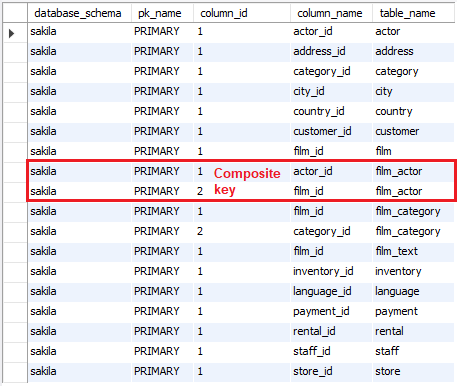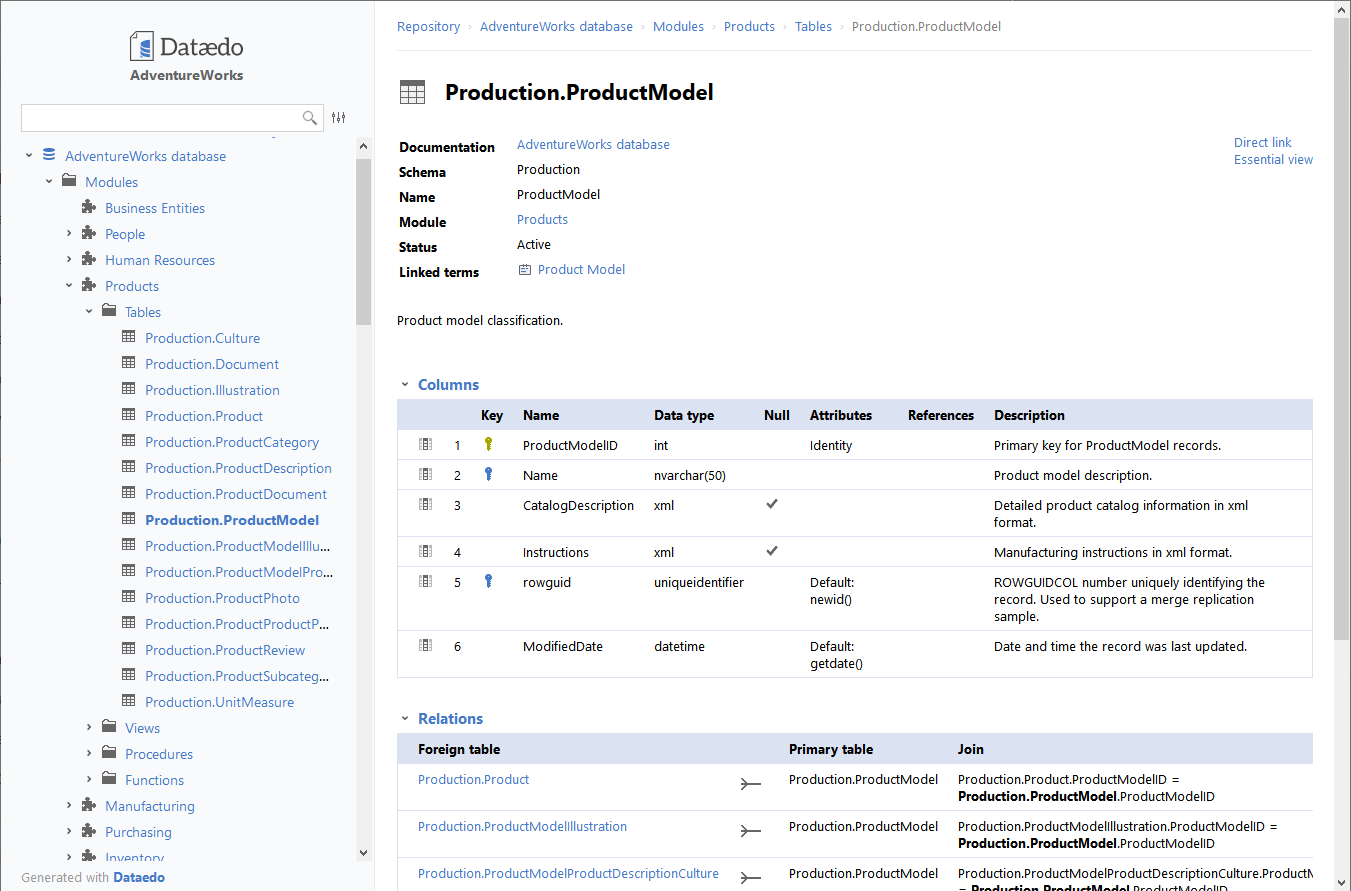The query below lists all primary keys constraints (PK) in a database (schema) with their columns (one row per column).
See also: list of all primary keys (one row per PK).
Query
select tco.table_schema as database_name,
tco.constraint_name as pk_name,
kcu.ordinal_position as column_id,
kcu.column_name,
tco.table_name
from information_schema.table_constraints tco
join information_schema.key_column_usage kcu
on tco.constraint_schema = kcu.constraint_schema
and tco.constraint_name = kcu.constraint_name
and tco.table_name = kcu.table_name
where tco.constraint_type = 'PRIMARY KEY'
and tco.table_schema not in ('sys','information_schema',
'mysql', 'performance_schema')
-- and tco.table_schema = 'database_name' -- put your database name here
order by tco.table_schema,
tco.table_name,
kcu.ordinal_position;
Columns
- database_name - PK database (schema) name
- pk_name - PK constraint name
- column_id - id of the column in index (1, 2, ...). 2 or higher means the key is composite (contains more than one column)
- column_name - primary key column name
- table_name - PK table name
Rows
- One row: represents one primary key column
- Scope of rows: columns of all PK constraints in a database (schema)
- Ordered by: database name, table name, column id
Sample results
Sample results for the Sakila database (schema)

You could also get this
Get this interactive HTML data dictionary in minutes with Dataedo.












 Bart Gawrych
Bart Gawrych